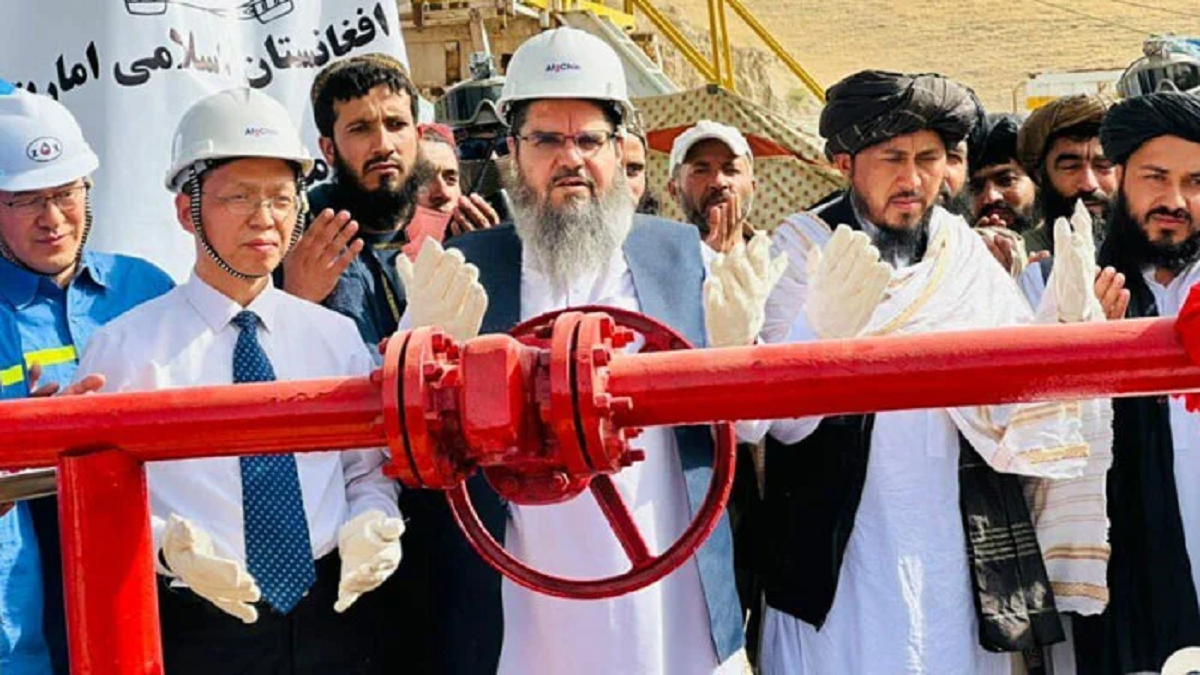The Taliban-led government in Afghanistan had embarked on an extraordinary endeavor – the extraction of oil from the Qashqari oilfield. This groundbreaking development marks a historic milestone for the war-torn nation, igniting a mix of curiosity, hope, and apprehension among its people.
According to a statement issued by the Mines and Petroleum Ministry, a remarkable feat is already underway, with approximately 200 tonnes of oil being successfully extracted from nine out of the ten wells located in the Qashqari basin in Sar-e-Pul. The announcement has sparked both cautious optimism and speculation about the potential implications for Afghanistan’s future.
Officials involved in this remarkable undertaking are buoyed by the initial success and hold ambitious aspirations of increasing the extraction capacity from the current 200 tonnes to a staggering 1,000 tonnes. The ability to achieve such a significant boost in production would undoubtedly have far-reaching consequences, potentially revitalizing the nation’s economy and offering a glimmer of hope amidst the prevailing challenges.
Amidst the backdrop of this momentous occasion, the acting Mines and Petroleum Minister, Sheikh Shahabuddin Delawar, emphasized the importance of prioritizing the employment of both technical and non-technical staff. He also highlighted the crucial role that the revenue generated from the Qashqari oilfield would play in the reconstruction and development of Sar-e-Pul, aiming to ensure that the local community directly benefits from this newfound resource.
During the inauguration ceremony of the wells, which was graced by the presence of several senior Taliban officials, Minister Delawar expressed his unwavering belief in Afghanistan’s abundant mineral resources. He emphasized the need for the Afghan people to fully harness the potential of these valuable natural assets, viewing them as a vital pillar for the nation’s economic growth and prosperity.
The acting governor of Sar-e-Pul, Mullah Mohammad Nadar Haqjo, echoed these sentiments, emphasizing the government’s commitment to harnessing internal resources for the nation’s development. He expressed optimism that incomplete projects from the past two decades would finally come to fruition, ushering in a new era of progress and stability.
Read More: PM Shehbaz Approves $10-14 Billion Oil Refinery Project In Pakistan
Last year, the Taliban signed a significant agreement with a Chinese company, sealing a deal to extract oil from Sar-e-Pul. This partnership signifies a strategic collaboration between the interim Afghan Taliban government and the Chinese firm, marking an important step towards unlocking Afghanistan’s vast potential in the energy sector.
Additionally, a 25-year agreement was reached between the Taliban government and the Chinese company for the extraction of oil from the Amu River basin and the development of an oil reserve in the northern region. This partnership, backed by significant investment, illustrates the immense value that Afghanistan’s untapped resources hold, attracting foreign investors and opening doors to a wealth of opportunities.
As Afghanistan sets foot on this uncharted path, the outcome remains uncertain. While the discovery and extraction of oil bring hope for economic revitalization and stability, it also raises questions about the future trajectory of the nation. The Afghan people, burdened by years of conflict and turmoil, are left to ponder the potential implications of this newfound resource. As the oil wells continue to flow, only time will reveal the true impact of this daring endeavor on the lives of ordinary Afghans and the destiny of their nation.



























